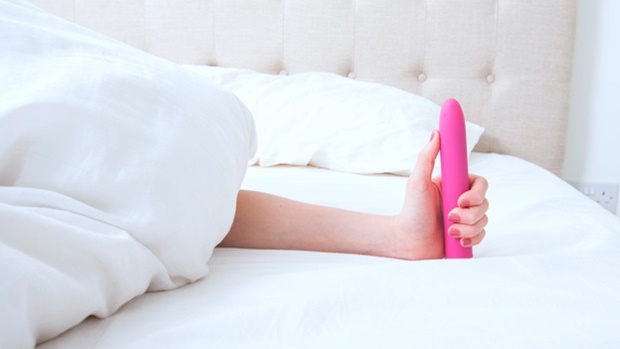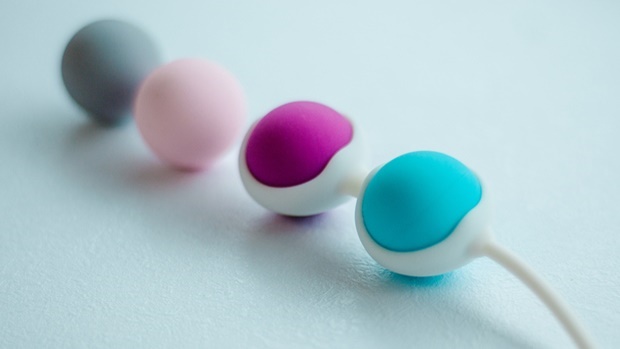There is a lot of misinformation out there about sex, sexual health and sexually transmitted infections (STIs).
We have all heard our fair share of bizarre sexual health myths, from when we were at school discussing what we thought we knew about sex, to that awkward “sex talk” parents have with their children.
Despite the progress in spreading awareness around these important topics, false ideas continue to be perpetuated.
Some of them you might know, some of them might shock you, but what is important is that these things are spoken about openly. Ignorance really is not bliss when it comes to your sexual health. These myths are harmful to our progression toward a more sex-positive and informed society.
Here are seven sexual health myth that should no longer be allowed to circulate.
1. ‘You can get an STI from a toilet seat’
Please stop squatting and dripping all over the seat – you cannot get an STI from a toilet seat.
While contact with infected skin could lead to an STI transmission, contact with a toilet seat will not. This is because the pathogens that cause STIs cannot live outside the human body for long.
It’s also unlikely you’ll contract any sort of infection from a toilet seat, for the same reason. Pathogens need a way into your body, and skin that has no open wounds or cuts acts as a natural barrier.
2. ‘You cannot get an STI from oral sex’
While the risk of getting an STI from oral sex is less than from vaginal or anal sex, there is still some risk. Many STIs, including syphilis, gonorrhoea, herpes and chlamydia, can be spread through oral sex.
3. ‘Anal sex causes hemorrhoids’
Hemorrhoids are as a result of increased pressure in the veins of the anus, the pressure causes these veins to swell, making them painful, especially when you are seated.

The main causes of hemorrhoids are excessive exertion during your bowel movements, constipation and anal infections. Anal sex will not cause hemorrhoids, as long as you take your time and make sure your anus is fully relaxed before engaging.
However, for those who already have hemorrhoids, anal sex can make your condition significantly worse.
Interested in anal play or prostate massage? It has been found to provide relief for those with erectile dysfunction and painful ejaculation. It has also been linked to improving urine flow.
4. ‘You cannot get pregnant during menstruation’
While conception during menstruation is unlikely, it is not impossible. Your chances of pregnancy are highest during ovulation, which is the point in your menstrual cycle where a tiny egg takes a trip from an ovary into one of your fallopian tubes.
Those who have short or irregular periods have an increased chance of having an egg present during menstruation. The egg can live for several days in your body, and additionally, not all women ovulate two weeks before their period; some ovulate closer to the time of their actual period.
5. ‘Douching after sex cleans the vagina and prevents pregnancy’
The vagina is self-cleaning and does not need extra solvents and soaps. In fact, douching has been found to cause more harm than good, disrupting the balance of bacteria and altering the normal pH of the vagina.
The vagina has both good and harmful bacteria, and douching can cause an overgrowth of harmful bacteria. A study conducted at the Schools of Public Health and Medicine, University of Alabama, found that douching can lead to bacterial vaginosis or a yeast infection. If you’re still not freaked out by this information, douching when you already have an infection can lead to pelvic inflammatory disease, which is a serious health issue.
6. ‘Masturbation makes achieving orgasm more difficult’
There seems to be a belief that regular masturbation will make you less sensitive down there and result in struggling to orgasm. This is completely untrue. In fact, frequent masturbation can actually improve your sex life as you become in tune with yourself. It will help you figure out what you like and dislike in bed. How can that be a bad thing?
Of course, using an intense vibrator six times a day, every day, might lead to some numbness. According to sexologist Dr Marelize Swart, “If used repetitively over the same area you may over-stimulate the nerves and so create altered or diminished sensation over that area. This should however return with time. It’s normal, and no problem in the long term.” So go ahead and enjoy yourself!
7. ‘Vaginas are tight or loose depending on the amount of sex a woman has had’
The “tight vs. loose” myth is fairly common. It is, however, completely untrue. The vagina is a muscle, much like an elastic band that has the ability to expand and contract. When a woman is aroused, the walls of the vagina soften and lengthen, making penetration easier. If you feel scared or uncomfortable, the walls of the vagina will naturally contract, making penetration difficult. The myth of a “loose” vagina has throughout history been used as a way to shame women for their sexual activities.
The truth is that it does not matter that much who you have sex with, or how often. While a vagina may change over time as a result of age and childbirth, penetration will not cause your vagina to stretch permanently.
Do you want to strengthen your vaginal muscles? Try Kegel exercises.
Image credit: iStock
NEXT ON HEALTH24X








